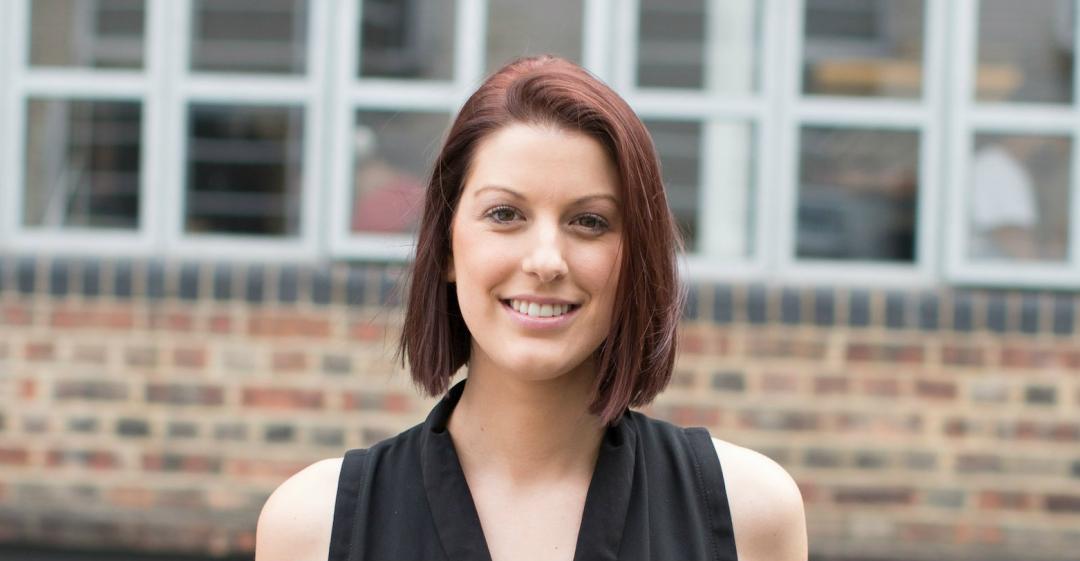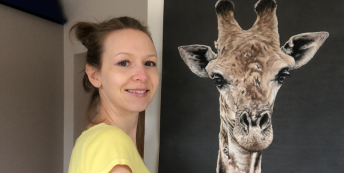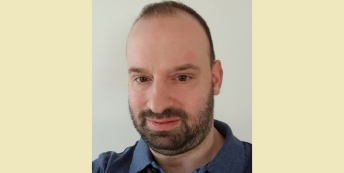“I was exhausted, and it just wasn't fulfilling me anymore.”

What work were you doing previously?
I was a sales and marketing manager, and then a consultant in the hospitality industry.
What are you doing now?
I'm the Founder of Kafoodle – a food technology software product that helps restaurants manage food and menus for people with allergies.
How did you feel in your work before you decided to make a change?
I'd worked in hospitality for nearly eight years.
Whilst I loved the industry, I was feeling more and more that I wanted to be my own boss and not be answerable to others.
Why did you change?
The main trigger for me was an opportunity.
I'd been thinking about either doing an MBA or starting my own business. As I was thinking, my friend Kim (who is now my business partner) approached me with an idea to develop an app to help restaurants deal with allergies. I knew I could throw my energy behind this and add a lot of value, so we started doing our research.
It was only when that research started to show there was a market for what we were doing that we decided to go for it.
When was the moment you decided to make the change?
It was when I was working with my last client.
I just felt that no matter what I did, he was never going to be happy with it.
I was exhausted, and it just wasn't fulfilling me anymore. I also felt I wasn't being challenged. I looked back over my last eight years and realised that I was good at what I did, but there was no more scope for me to learn.
How did you choose your new career?
I think the circumstances almost chose me.
I was drawn to this idea because I knew I loved hospitality, so knew I could add a lot of value. It wasn't a hard leap for me, but it is completely different to what I was doing before. Designing a software product wasn't exactly my comfort zone!
Are you happy with the change?
Absolutely.
I have no regrets whatsoever.
What do you miss and what don't you miss?
I miss the camaraderie of a large team.
When you work for an organisation, you're with a team: you work together and you play together. It sounds like a bit of a cliché, but it can be lonely at the top. If it wasn't for Kim I don't know how I'd do this. I'm so happy I have her to celebrate and commiserate with.
I also miss the structure. Running a start-up means there's no one who's trodden this path before. Every day, you deal with what gets thrown at you. Every day is different and each challenge is another story.
It would sometimes be nice just to have a job where you know exactly what to expect and you can go on autopilot for a few days!
How did you go about making the shift?
We had the idea – but we needed to do lots of research.
Every Saturday for six months, we got together at Kim's house and spoke to as many restaurant owners as we could. My own knowledge of the industry was really useful and together we built up enough research and feedback to know we could make a go of it.
The real kicker was taking on a chairman who helped us fund the idea and get things started.
What didn't go well? What 'wrong turns' did you take?
I can't list them all – I'd need pages!
I guess the one which stands out most is making bad hiring decisions. We hired a sales manager and after six months, there still hadn't been one sale. I wish I'd dealt with that quicker.
However, you do realise that you can't get everything right. That just doesn’t happen. I've learnt not to take it too personally when I make mistakes. Everyone does it – that's how we get better.
How did you handle your finances to make your change possible?
I've been a bit of a saver all my life.
By the time I got to the point of starting this business, I'd saved up enough money to do an MBA. I spoke to my brother about it (he's a talented and successful investment banker). He advised that I'd probably learn more doing my own business and that it would probably cost less: MBA's are expensive and in addition to the course costs, you also have to fund your living costs for a year.
So I had savings behind me, but the main thing was I didn't give up work until we were ready. I carried on in my job for six months whilst Kim and I were doing the research on this.
What was the most difficult thing about changing?
Probably starting without having any future or plan mapped out.
It's daunting and exciting in equal measure, and it's hard getting over that barrier of not knowing what's in store.
What help did you get? 
I use my own network and have four advisors who keep us on the straight and narrow!
What resources would you recommend to others?
I’d really recommend 'vapour selling', which is where you sell something you haven't created yet.
You can go down the long and expensive road of building something and then finding out you have no market for your product, or you could sell the idea, get people to sign up for when it's ready and then deliver to them.
What have you learnt in the process?
Be prepared to pivot!
Our product is a completely different product to what we started off with and it's been constantly revised and developed.
You have to be prepared to change and develop your product around feedback, so it really is true that you should go with a minimum viable product (MVP).
What would you advise others to do in the same situation?
Do your research, test and try things out and see how you feel about them. If you can, test the market and see how it responds.
I love my journey and would do it all over again, but it isn't for everyone.
I've signed up with ViewVo as a mentor as I'm willing to let others shadow me and learn what the life is like. If it suits then great, but learn about it before you go diving in. Shadowing others who have been there and done that is a message and vision I get on board with.
To find out more about shadowing opportunities with ViewVo, visit www.viewvo.com.
To learn more about Tarryn's business, visit www.kafoodle.com.
What lessons could you take from Tarryn's story to use in your own career change? Let us know in the comments below.



